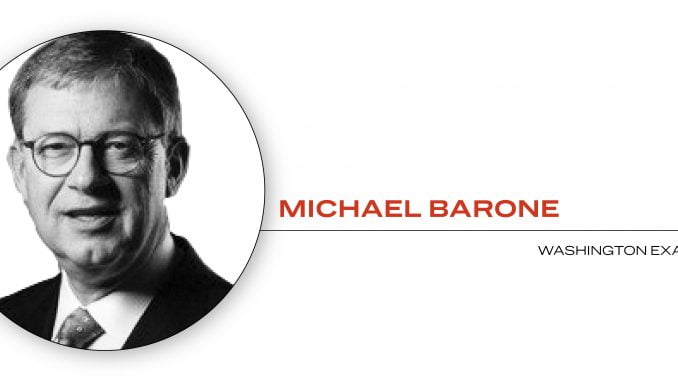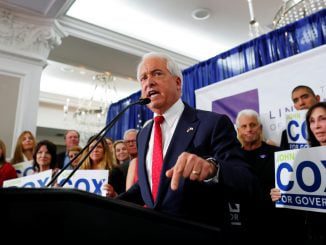
What went wrong with Ron DeSantis’ presidential campaign? You can list many arguable mistakes, as you can with any campaign, and you can add, as some reporters have, that the candidate was not likable or good at retail campaigning — which mostly reflected reporters’ personal dislike of DeSantis or resentment at his refusal to schmooze what he considered unfriendly press.
But I think his campaign’s failure came down to two things. One is that Republican voters rallied to Donald Trump in the face of what they regarded (correctly, in my view) as politically motivated and legally unjustified indictments. I made that point in columns last November and December and once again in my column after DeSantis’ second-place finish in the Iowa caucuses last week.
You can say that Republican voters responded mindlessly to these indictments, or without prudent regard for the possibility that convictions on one or more charges would make Trump unelectable in the fall. You might add, with a chortle if you’re a Trump supporter, that Democratic prosecutors who thought they were disqualifying Trump were actually making him stronger.
But there is no question that there was a rallying around Trump, a rally that disregarded the plenteous evidence from 2021 and 2022 elections that his claims to have actually won in 2020 cost Republican candidates decisive votes. And a rally that put into the shade the strong arguments that DeSantis had shown in Florida the capacity to actually deliver on his promises, in stark contrast with Trump’s incapacity to do so on many issues — including the wall! — in his four years as president.
Which leads me to my second point, which is that it is hard to get a party’s voters to repudiate a party’s president. As National Review’s Dan McLaughlin has written, that hasn’t happened in the era in which primary voters started dominating the presidential nomination process in the 1972 cycle. Democratic national conventions did reject ex-President Martin Van Buren in 1844 and refused to renominate Franklin Pierce in 1856, and Republican national conventions rejected Ulysses S. Grant in 1880 and Theodore Roosevelt in 1912, and gave no serious consideration to Herbert Hoover in 1936 or 1940.
In contrast, Gerald Ford beat Ronald Reagan in 1976, Jimmy Carter beat Edward Kennedy in 1980, and George H.W. Bush dispatched Pat Buchanan in 1992 — although in each case the challenger got to deliver a convention speech that caused some ruckus and the incumbent lost in November. It turns out that it’s hard to ask voters who have already voted once for a president, and who have reflexively defended him against critics time and again, to turn and vote against him — as evidenced by the fact that the strongest of these challenges was Reagan’s against Gerald Ford, the one incumbent here who had not been elected president himself.
So perhaps DeSantis’ defeat was inevitable, at least after the indictments and maybe from the beginning, just as his decision to withdraw was overdetermined. Polls suggested he’d finish in single digits in Tuesday’s New Hampshire primary, his chances were dismal in the Feb. 8 caucuses in Nevada (Trump’s best early-contest state in 2016), and his chances seemed no better in the Feb. 24 primary in South Carolina, Nikki Haley’s home state and whose governor and two senators have endorsed Trump.
It would have been impossible for DeSantis to have maintained a semblance of a campaign, against such odds, over those 33 days. The difficulty of plugging on over a similar interval prompted the withdrawal of Democrat Bill Bradley after losing New Hampshire to Al Gore by only 4 points in 2000.
Writing about the presidency in Federalist 70, Alexander Hamilton asserted that “energy in the executive” is important. Thanks to the decisions of our two parties’ voters, the nation will have to rely on the energy of one of two executives who are or will be past 80 in the term they are seeking.
Michael Barone is a senior political analyst for the Washington Examiner, resident fellow at the American Enterprise Institute and longtime co-author of The Almanac of American Politics.



